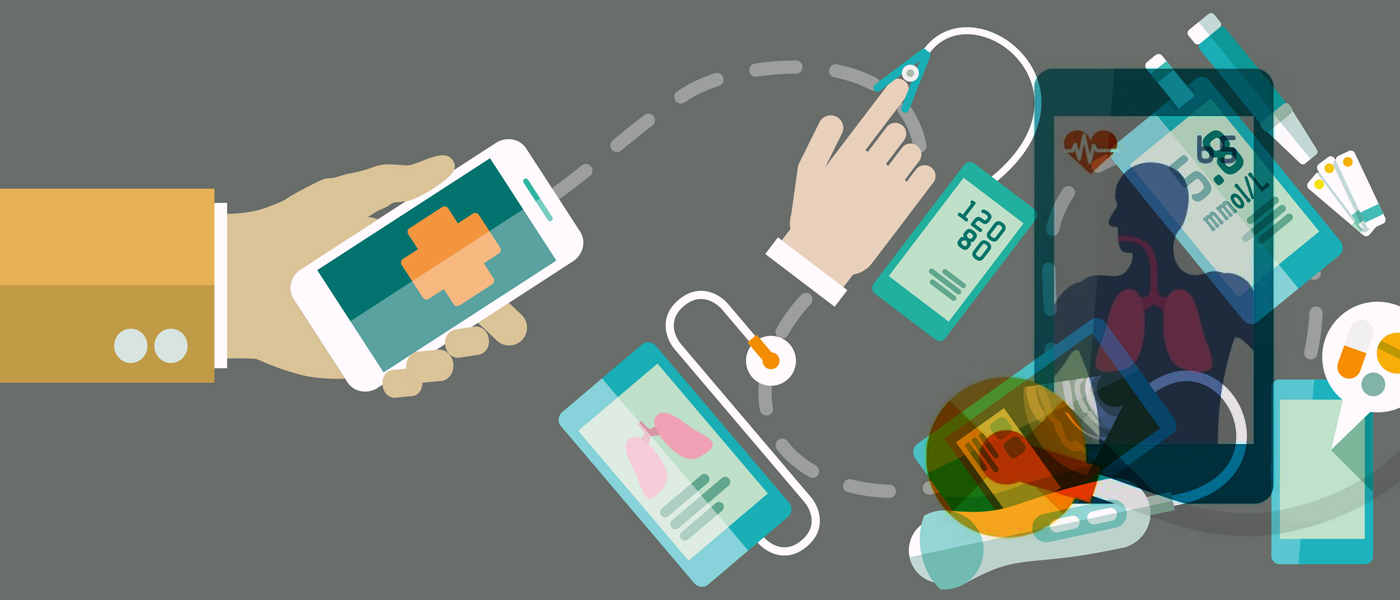Is mHealth A Boon To Pharmaceutical Industry
 Mobile health or mHealth is amongst the greatest advanced developments within the healthcare industry which have proven incredible growth over the last couple of years. This phenomenon is noticed because of the growth in personal health devices, that can be easily worn or can be used by having a smart phone or can be used in a tablet. Mobile Health means the usage of mobile communications, such as for example personal digital assistant, mobile phones, laptops and so on, for health and information services. Based on the Cutting Edge Information's white paper release 2015, the value of mHealth within the pharmaceutical sector will keep growing.
Mobile health or mHealth is amongst the greatest advanced developments within the healthcare industry which have proven incredible growth over the last couple of years. This phenomenon is noticed because of the growth in personal health devices, that can be easily worn or can be used by having a smart phone or can be used in a tablet. Mobile Health means the usage of mobile communications, such as for example personal digital assistant, mobile phones, laptops and so on, for health and information services. Based on the Cutting Edge Information's white paper release 2015, the value of mHealth within the pharmaceutical sector will keep growing.
Although figures don't always show the overall facts, certain figures mentioned within the white paper are very informative. During the 1st quarter in 2014 the overall mHealth applications on the iOS and the Android platforms leaped over 100,000 and keeps growing. Even more informative is that in the past thirty months 5,000 among those applications gained revenues over $1 million. Mobile strategies this time account for 14% of marketing blends of teams which were surveyed. Some other sources apparently support these results. According to the predictions of Mobile Health Market News, clinical mHealth spending is going to rise $2.5 billion during 2011 to 2016. As per mHealthWatch predictions, the mHealth industry by 2017 will reach $26 billion.
In the industry where information is essential and suggestions by external partners are so crucial, the appeal is obviously clear. Even, the paper alerts pharma not to fully depend on mobile technologies to get desired outcomes. With the help of these devices to enhance medical education along with patient adherence, businesses can better place themselves to take advantage of mHealth in the future. Nowadays, a lot more consumers rely on the internet, usually through their smartphones, than in the past to get medical information. Whereas text message campaigns don't need smart phones, but to access the internet it does requires. The global penetration for mobile broadband is 32% just the double what it had been in the year 2011. In Europe, it is 64% which is the highest penetration rate, when compared to North & South America together it is just 59%. The broadband speed also must be considered, as it can vary across geographic areas because it differs around geographic locations.
While smartphones along with tablets are increasing all over the world, companies have turned to mHealth development services in order to improve interaction with the patients. Uses to cover anything from text messages to the remind patients for having medicines to even more interactive systems which could coordinate, for instance, a glucose meter by using a mobile app for the diabetes patients.
There could be unwillingness from Big Pharma getting involved in new technologies, particularly when they're not sure with the Food and Drug Administration (FDA)'s position. The FDA has reviewed mHealth technologies and also the level that it may need to regulate them. What sort of mobile apps could be subject to regulatory oversight had been specified in the Safety and Innovation Act of 2012, whereas final guidance given during September 2013 highlighted the FDA will focus its concern upon medical mobile devices. As a whole, the FDA promises to work out its regulatory oversight upon mobile applications which either function in connection using a separate medical device otherwise change a current mobile platform, for instance tablet, Android, an iPhone and more, to the regulated medical device, reports the paper. Actually, in cases where a mobile app has got the potential to have an effect on patient safety for the better or even for worse, then the FDA wants to examine it. Some other mobile initiatives would be examined on the case by case basis.
Although mHealth is really an approach for pharma companies in order to develop themselves to patient-centric, unanswered concerns in the regulatory end might still result in a few companies to be reluctant. Despite having guidance in place, it is not possible to make sure how the FDA is going to impose its final judgment. The acceptance from the FDA during January 2015 associated with a number of mobile medical apps might give some knowledge. In the decision, the FDA regarded the risk posed from the system as “low to moderate.” It is likely to reduce concerns and motivate the development of even more mobile apps. Even so, companies must not move to the mHealth development services without having complete knowledge what they really want from an app.
Powered by 10+ years of mobile healthcare expertise, Mindfire creates custom mHealth apps for providers, patients & healthcare ISVs enabling exceptional results in healthcare quality, effectiveness, and accessibility. If you are in need of developing mHealth application software, mail your requirements to sales at Mindfire Solutions dot com to let us help you in your endeavor.
